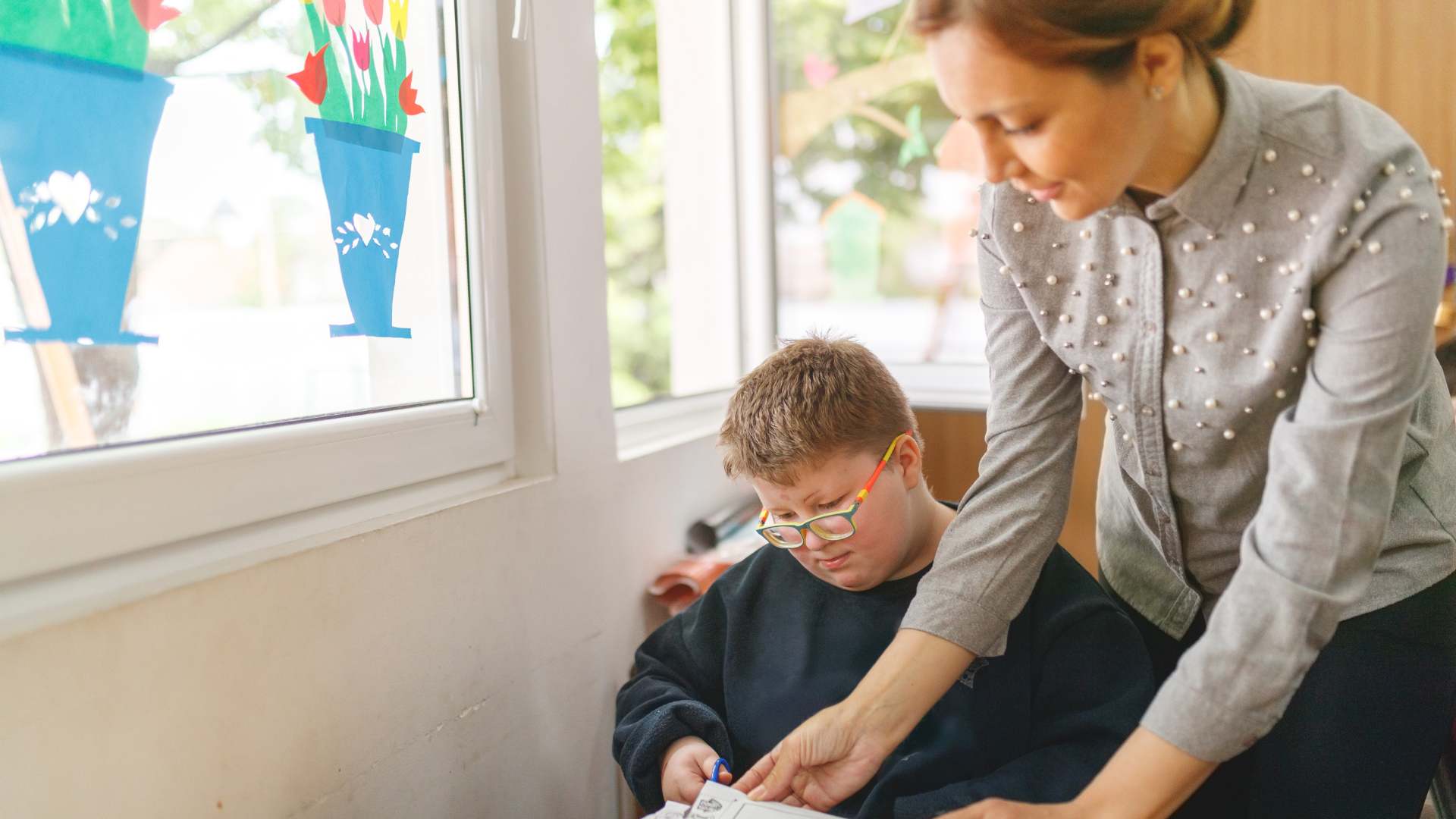How To Become a SEND Teacher
22 May, 20251 - 2 minutes
In this blog, you will learn:
- The types of difficulties a child or young person with SEND might experience.
- The skills a SEND Teacher must possess.
- How to become a SEND Teacher.
- Where the latest SEND Teacher jobs are and how to apply for them.
- Discover more about our SEND recruitment services.
Special educational needs (SEND) Teachers work with children and young people who have special educational needs or disabilities throughout schools and SEN provisions across the UK.
Working as a SEND Teacher can be an incredibly rewarding career as responsibilities include helping young people to thrive in and out of an educational setting. However, it is of utmost importance for a SEND Teacher to have a thorough understanding of education policies in order to achieve the best possible outcomes for children and young people with SEND.
A SEND Teacher can be expected to support pupils with a number of different disabilities, which could include speech, hearing or sight impairments and behavioural or learning difficulties such as ADHD, autism or dyslexia. These difficulties can have a direct impact on the individual's ability to learn and as such, they need additional support.
What difficulties might a child or young person with SEND experience?
A SEND child might have:
- Problems with understanding other people, numbers and general information.
- Difficulties with reading and writing.
- Problems building relationships with adults.
- Difficulties with organising their time.
- Behavioural struggles, including difficulties with expressing feelings.
- Struggles with physical or sensory needs.
What skills must a SEND Teacher possess?
As SEND Teachers will work with children with various physical and emotional needs, it can be an incredibly demanding yet rewarding career. Due to the importance of this role, SEND Teachers must have very specific skills and qualifications.
Key skills include:
- Empathy - This is important for understanding the feelings a child is experiencing. If they are having difficulty communicating their emotions, a SEND Teacher must be able to empathise with them. This is also crucial for ensuring SEND pupils feel supported at all times.
- Patience and understanding - If a child or young person with SEND is having difficulty communicating, it is essential that a SEND Teacher shows patience and does not try and speak over the child. Giving children the confidence to communicate their thoughts and feelings is very important.
- Effective communication skills - This is essential for being able to clearly communicate instructions to children with SEND. Clear, concise instructions help pupils understand what is expected of them in the classroom.
- Behaviour management, particularly dealing with challenging behaviour - If a child is displaying challenging behaviour, a SEND Teacher must be able to effectively manage this behaviour ensuring disruption to the class is minimised and that the child displaying this behaviour is dealt with in a fair, compassionate manner.
- Teamwork - Day to day a SEND Teacher will collaborate with many other educational professionals, whether they be within the school or from a local authority. Teamwork is essential for ensuring everyone is on the same page and prioritising a positive learning experience for a child or young person with SEND.
- Organisational skills - Important in any classroom, organisational skills will help a SEND Teacher keep on top of a busy workload and balance the needs of their pupils alongside important administration tasks.
- Adaptability to changing situations - This is an essential skill for a SEND Teacher as they must be able to adapt their teaching style and lesson structure to meet the needs of individuals. Children with SEND often have diverse needs and so adaptability in the classroom is crucial for ensuring a fulfilling education.
Routes to becoming a SEND Teacher
There are a number of ways to become a SEND Teacher, including:
- The university route.
- The apprenticeship route.
- The route if you’re already a qualified Teacher.
- The route if you’re already a Teaching Assistant.
The university route
There are different routes to becoming a SEND Teacher. One route is through an undergraduate degree at university which leads to Qualified Teacher Status (QTS). Examples of these include:
- Bachelor of Education (BEd)
- Bachelor of Arts (BA) with QTS
- Bachelor of Science (BSc) with QTS
You could also complete a postgraduate certificate in education (PGCE), if you have a first degree without QTS. This is a popular option and can be completed at university or on a school-based training programme.
To qualify for a university course, you'll usually need:
- 4 or 5 GCSEs at grades 9 to 4 (A* to C), or equivalent, including English and maths.
- GCSE science at grade 9 to 4 (A* to C) for primary school teaching.
- 2 to 3 A levels, or equivalent, for a degree.
There are also a number of postgraduate programs in the UK designed for educators looking to work in a SEN setting. For example, the University of Reading offers PGCE Primary Postgraduate Certificate in Education with Special Educational Needs (SEN). This certification leads to QTS and allows professionals to specialise in teaching children with SEND who are aged 5-11 years old.
The apprenticeship route
Another route to becoming a SEND Teacher is through an apprenticeship. If you have a degree, there are a small number of postgraduate teaching apprenticeships available.
To qualify for an apprenticeship, you'll usually need:
- GCSEs at grades 9 to 4 (A* to C) in English and Maths.
- GCSE science at grade 9 to 4 (A* to C) for primary school teaching.
- A degree for a teaching apprenticeship.
- On occasions, some providers may require experience in an educational setting or working with young people.
The route if you’re already a qualified Teacher
If you're already a qualified Teacher, you could apply for extra training from your local education authority to become a SEND Teacher. There are many virtual and in person Teacher training events which can advise you about different training routes and funding.
If you’re looking to join a SEND private school, the entry requirements may be different to those of a state school.
The route if you’re already a Teaching Assistant
If you're already a Teaching Assistant, you could join a development programme such as ‘Straight to Teaching’ by Tes Institute. As Teaching Assistants are already well acquainted with the school and children they would be working with, these types of programmes are designed to support them in taking the next step to gaining qualifications.
SEND Teacher jobs
If you’re searching for your next SEND Teacher job, why not take a look at the latest teaching vacancies, or simply upload your CV to be notified when a relevant position becomes available.
Recruit SEND Teachers
As a specialist SEND recruitment agency, we support mainstream and SEND schools with their temporary, permanent and temp-perm staffing needs.
We currently work with hundreds of schools and have exclusive access to some of the best SEND Teachers and SEND Teaching Assistants in the North West.
If you’re struggling to fill a teaching vacancy, why not get in touch with one of our team to see how we can help?
Primary schools - Jimmy Callagher
Secondary schools - Liam Jones
SEND schools - Jamie Heath
Who is Spencer Clarke Group?
Established in 2017, we’re an award winning and progressive recruitment agency based in the heart of the North West. Our reputation is built on trust, expertise and an unwavering commitment to exceed expectations.
In 2024, we were named Recruitment Agency of the Year at the prestigious Recruiter Awards, an accolade we are extremely proud of.



